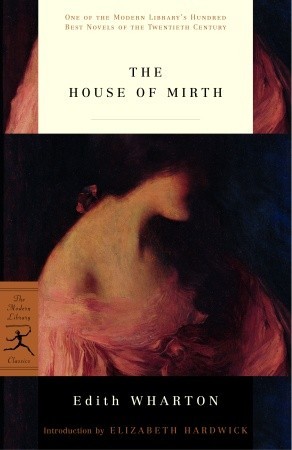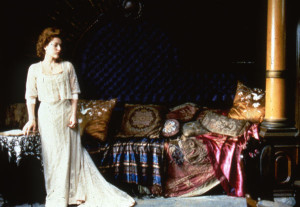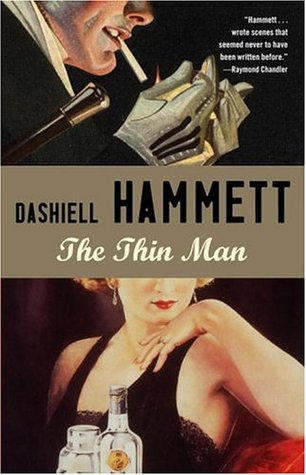To follow up 17th Street’s special book blog series on The Alienist, I have decided to present one of my favourite classics by another renowned New York author, Edith Wharton, as the first 17th Street book blog for 2015 given that it also explores several of The Alienist’s central themes. Even though I have never seen any interviews in which Caleb Carr has commented on Edith Wharton’s work, Edith is unquestionably one of the masters of social commentary and psychological insight when it comes to the world of gilded age New York, and The House of Mirth is an excellent starting point for any readers of the Alienist books who might be unfamiliar with her work, with its themes ranging from the role of women in society to psychological determinism.
What’s it about?
It is the turn of the twentieth century, and the beautiful Miss Lily Bart, one of the darlings of New York society, is 29, unmarried, and in need of a husband in order to keep living the luxurious life to which she became accustomed prior to her family’s financial ruin several years earlier. Through Lily’s story, as well as those of the characters who surround her, we witness first-hand the moral, social, fiscal, and psychological implications of one woman’s desire for personal freedom and independence in a cut-throat world where debts—both financial and societal—must be paid, or the consequences suffered.
My thoughts
In his Introduction to Edith Wharton’s autobiography, A Backward Glance, Louis Achincloss wrote:
It was said of Edith Wharton that she and Theodore Roosevelt were self-made men, and the saying pleased her. She and the president, contemporaries and good friends, had grown up together and escaped from the kind of society that was the hardest of all to escape from: the secure, complacent haute bourgeoisie of the late nineteenth century that found politics too dirty for gentlemen and letters too inky for ladies.
Not surprisingly, the concept of personal freedom and what it meant for women and men in the late nineteenth century runs deep in Edith’s 1905 novel, and is evident as early as The House of Mirth’s opening scene. In this scene, Lily Bart is passing time in her friend Lawrence Selden’s bachelor flat while she awaits a train to take her upstate for the summer. While the pair take tea together in Selden’s flat, we are presented with the contrast of an intelligent young woman who feels that she must marry in order maintain her position in society with that of a similarly aged young man who is more than capable of maintaining his position whilst also retaining his independence.
Book 1, Chapter 1:
“But do you mind [having to work] enough—to marry to get out of it?”
Selden broke into a laugh. “God forbid!” he declared.
She rose with a sigh, tossing her cigarette into the grate.
“Ah, there’s the difference—a girl must [marry], a man may if he chooses.” She surveyed him critically. “Your coat’s a little shabby—but who cares? It doesn’t keep people from asking you to dine. If I were shabby no one would have me: a woman is asked out as much for her clothes as for herself. The clothes are the background, the frame, if you like: they don’t make success, but they are a part of it. Who wants a dingy woman? We are expected to be pretty and well-dressed till we drop—and if we can’t keep it up alone; we have to go into partnership.”
Of course, as we have recently seen in The Alienist book blog series, as well as in the Education of Sara Howard history blog series, there was also a growing movement among middle and upper class women in the late nineteenth and early twentieth centuries to push back against the prevailing view that the only respectable occupation for women in society was as a doting wife and mother in the home. We see such women represented in the Alienist books by Sara Howard, and Edith Wharton did not fail to represent these women in The House of Mirth either given her inclusion in the novel of Selden’s cousin, Gertrude Farish. However, in typical Wharton style, Edith pulled no punches in describing how independent women like Gerty were viewed in society, even by those women who might have envied their level of personal freedom.
Book 1, Chapter 1:
“Even women,” [Selden] said, “have been known to enjoy the privileges of a flat.”
“Oh, governesses—or widows. But not girls—not poor, miserable, marriageable girls!”
“I even know a girl who lives in a flat.”
She sat up in surprise. “You do? … Oh, I know—you mean Gerty Farish.” She smiled a little unkindly. “But I said marriageable—and besides, she has a horrid little place, and no maid, and such queer things to eat. Her cook does the washing and the food tastes of soap. I should hate that, you know.”
… As he watched her hand, polished as a bit of old ivory, with its slender pink nails, and the sapphire bracelet slipping over her wrist, he was struck with the irony of suggesting to her such a life as his cousin Gertrude Farish had chosen. She was so evidently the victim of the civilisation which had produced her, that the links of her bracelet seemed like manacles chaining her to her fate.
She seemed to read his thought. “It was horrid of me to say that of Gerty,” she said with charming compunction. “I forgot she was your cousin. But we’re so different, you know: she likes being good, and I like being happy. And besides, she is free and I am not. If I were, I daresay I could manage to be happy even in her flat. It must be pure bliss to arrange the furniture just as one likes, and give all the horrors to the ash-man. If I could only do over my aunt’s drawing-room I know I should be a better woman.”
As we can see from this quote, another prominent theme in The House of Mirth is also shared with the Alienist books—that of psychological determinism. This is a recurring theme in Wharton’s work, and we are constantly reminded throughout the text that all of the characters in the novel, including Lily, are “victims” of their environment. Although this theme permeates the entirety of The House of Mirth, it is particularly strong in the second half of the novel when the consequences of Lily’s most recent decisions are felt with their full force. For example, when Gerty asks Lily to explain the origin of her most recent troubles so that she may be of some help, Lily merely responds,
Book 2, Chapter 4:
“From the beginning?” Miss Bart gently mimicked her. “Dear Gerty, how little imagination you good people have! Why, the beginning was in my cradle, I suppose—in the way I was brought up, and the things I was taught to care for…”
This theme of psychological determinism even extends to the relationship between Lily and Selden, which is arguably the central focus of the novel. It relates to what they are able to teach each other, to how they are able to help each other, and most importantly to how they are able to care deeply for one another despite—or, perhaps, because of—the fact that they are capable of seeing through the other’s facade to who they truly are. For example, although Lily credits Selden with introducing her to “the republic of the spirit” (his concept of personal freedom), as Selden points out, it was Lily’s own character and strength that caused her to be drawn to such a concept in the first place, thus demonstrating that the things that ultimately make the difference in our lives are within us all along.
Book 2, Chapter 12:
“I must go,” she repeated, making a motion to rise from her chair. “But I may not see you again for a long time, and I wanted to tell you that I have never forgotten the things you said to me at Bellomont, and that sometimes—sometimes when I seemed farthest from remembering them—they have helped me, and kept me from mistakes; kept me from really becoming what many people have thought of me.”
… “I am glad to have you tell me that; but nothing I have said has really made the difference. The difference is in yourself—it will always be there. And since it is there, it can’t really matter to you what people think: you are so sure that your friends will always understand you.”
So, if you are interested in reading a superbly crafted piece of classic literature set in old New York that touches on many of the same themes as the Alienist books, I strongly recommend giving The House of Mirth a try. Even though Lily Bart and her contemporaries may not, on the surface, appear to be the type of characters that readers of the Alienist books might typically be drawn to, Edith Wharton’s keen psychological insight is capable of allowing us to see the humanity and depth in such characters, and to help us see, as Selden did, that it is in our ability to “struggle against the influence of [our] surroundings,” to believe in each other, and to seize the “fleeting [victories] over [ourselves]” that helps to keep us “from atrophy and extinction,” no matter what our walk of life.





